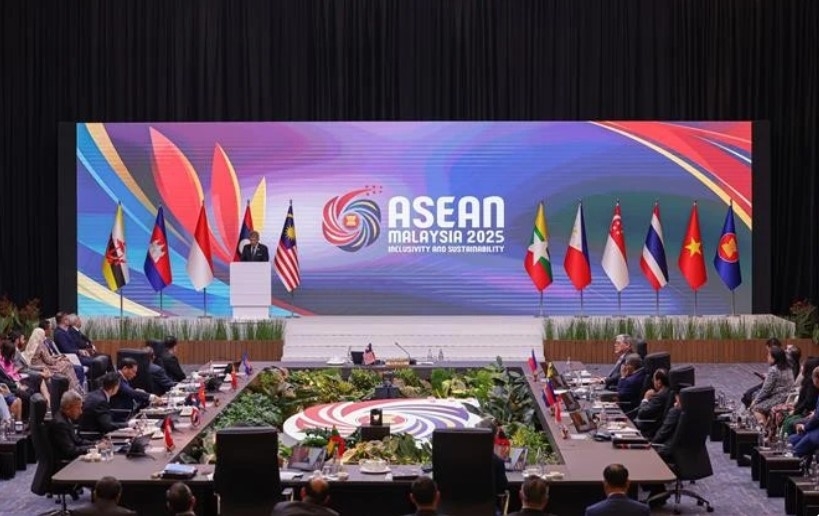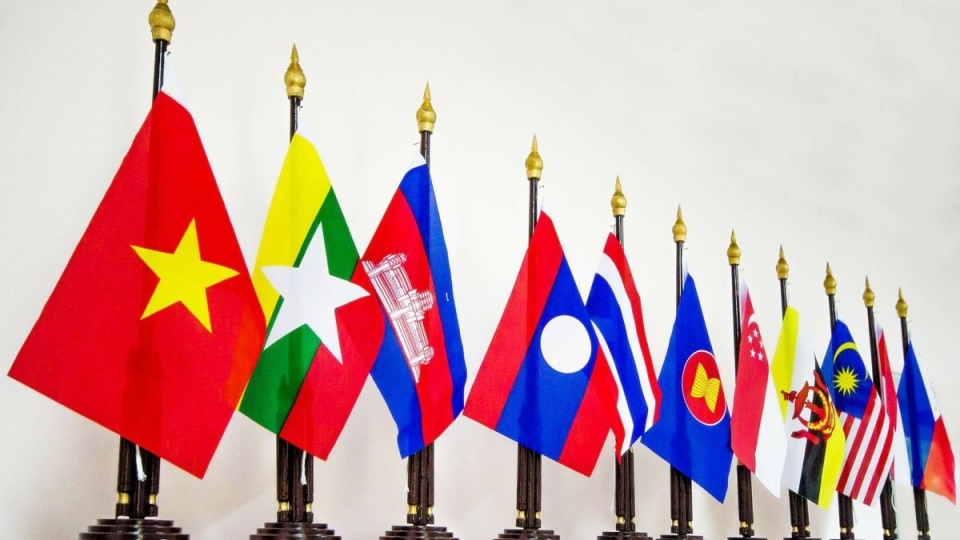Vietnam attends ASEAN meetings for promoting regional cooperation
Deputy Prime Minister and Foreign Minister Bui Thanh Son led a Vietnamese delegation to the ASEAN Foreign Ministers’ Meeting, the meeting of the Southeast Asia Nuclear Weapon-Free Zone (SEANWFZ) Commission, the 29th ASEAN Political-Security Community (APSC) Council Meeting, and the 36th ASEAN Coordinating Council Meeting, in Kuala Lumpur, Malaysia.

In his speech on May 25, Son expressed his gratitude for the condolences and kind sentiments extended by representatives of the countries on the passing of former State President Tran Duc Luong.
He spoke highly of Malaysia’s role as ASEAN Chair in guiding the regional cooperation process at a pivotal moment for the bloc, noting that the context today, marked by more complex difficulties and challenges than before, requires ASEAN and its member states to stand closely together and give the highest priority to the Community-building process.
The ASEAN Community Vision 2045, along with new cooperation strategies, will serve as a framework for joint action, proactive adaptation, and enhanced development in the region, Son said, stressing the need for ASEAN to strengthen its resilience, particularly economic resilience, to withstand external shocks.
The Vietnamese official noted that ASEAN’s external relations should follow a consistent and focused approach aligned with the bloc’s long-term strategic priorities.
Noting the complex developments of emerging security challenges, Son emphasised the urgent need to strengthen cooperation at both regional and global levels. The official expressed his hope that countries will support and participate in the signing ceremony of the UN Convention against Cybercrime in Hanoi, scheduled for late October 2025.
He also proposed the development of an ASEAN Declaration on enhancing cooperation in the pursuit of wanted criminals, aiming to gradually position ASEAN as a model in combating transnational crime.
Son and other delegates exchanged views and reaffirmed ASEAN's principled stance on regional and international issues. He also suggested ASEAN explore new approaches and measures to more effectively implement the Five-Point Consensus on Myanmar.
Highly evaluating Timor-Leste’s efforts, Son reaffirmed Vietnam’s support for Timor-Leste’s early accession to ASEAN. He stated that drawing from 30 years of experience as a member of ASEAN, Vietnam understands the challenges involved and stands ready to assist the country both in the preparation process and in implementing membership obligations in the first years of joining ASEAN.
Regarding preparation for the ASEAN Summit scheduled for May 26–27, Malaysia announced that all organsational arrangements had been completed.
The participating ministers reviewed and agreed to submit for ASEAN leaders’ adoption of the “Kuala Lumpur Declaration on ASEAN 2045: Our Shared Future.”
Reviewing the blueprints for building the ASEAN Community in the 2016-2025 period, they emphasised the need to promote lessons learned over the past 10 years, especially strengthening the bloc’s solidarity and centrality, demonstrating a strong common voice and enhancing the effectiveness of ASEAN-led mechanisms.
They called for the prompt concretisation of the ASEAN Vision 2045 and associated strategies, including the development of sectoral cooperation programme and the prioritisation of enhancing ASEAN’s capacity to respond to non-traditional security challenges. They also agreed to strengthen intra-bloc trade and investment, tap into the potential of science and technology, the digital and green economies, and expand connectivity with partners on the basis of mutual benefit.
The ministers also engaged in in-depth discussions on regional and international issues, reaffirming ASEAN’s common stance and principles. They underlined the necessity to fully implementing the Declaration on the Conduct of Parties in the East Sea (DOC) and continuing to accelerate negotiations on an effective and substantive Code of Conduct in the waters (COC) that is in line with international law, especially the 1982 United Nations Convention on the Law of the Sea (UNCLOS).



